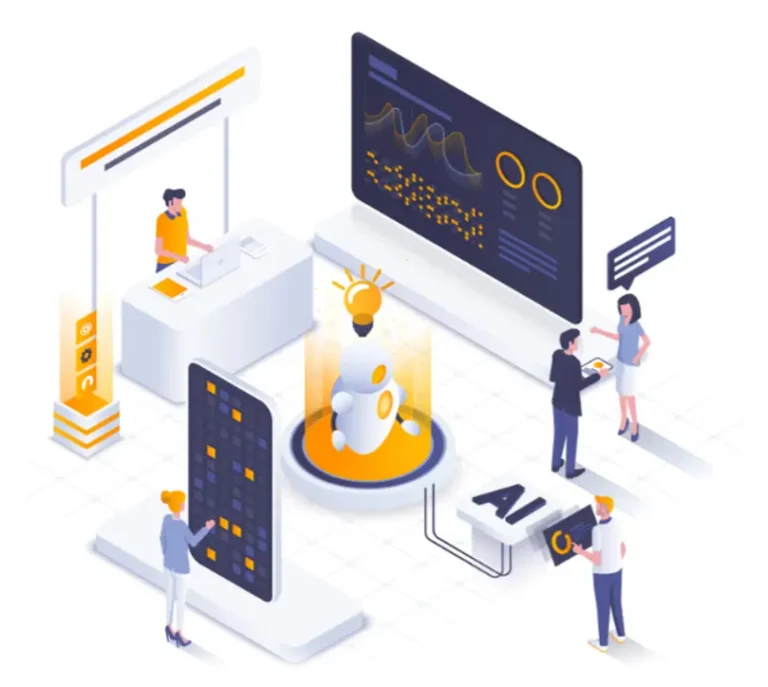6 practical ways GPT-3 models can serve law firms (and 3 concerns to keep in mind) from Helm360
How ChatGPT supports legal operations
Law firms can harness the value of GPT-3 to support individual attorneys and the overall business. A few potential ways in which GPT-3 could be relevant for law firms include:
- Legal research: GPT-3 could be used to qickly search through large amounts of legal documents and cases to find relevant information, potentially saving lawyers and paralegals time and effort. For example, a lawyer might use GPT-3 to sort through discovery documents in litigation, asking it to find specific clauses or terms. This capability could be especially useful for complex cases that require a significant amount of research, such as class-action lawsuits or multi-jurisdictional disputes.
- Document generation: With input from lawyers, GPT-3 could be used to generate legal documents, such as contracts, correspondence, reports and legal briefs. This could streamline the document creation process and reduce the need for manual drafting from law firm staff. In addition, GPT-3’s ability to understand and interpret complex legal language could help ensure that the generated documents are accurate and legally sound — at minimum, in a capacity comparable to the level of a junior associate. While GPT-3 is helpful as a writing tool, it’s still critical to thoroughly review the new documents for discrepancies, particularly in regard to niche areas of the law.
- Predictive analytics: GPT-3 could be used to analyze legal data and predict the outcomes of cases, potentially assisting lawyers in strategizing and preparing for court proceedings. Law firms that handle a high volume of cases might find this particularly valuable, as it can help them to prioritize their workload and allocate resources more efficiently. For instance, a defense litigation firm that handles product liability litigation could use GPT-3 to analyze the facts of each case and make predictions about likely outcomes in order to make decisions around which lawsuits to settle and which to take to trial.
- Customer service: GPT-3 could be used to automatically answer common inquiries and provide information to clients, freeing up lawyers to focus on more complex and high-value tasks. This can be achieved by creating a chatbot or virtual assistant service that is trained to answer frequently asked questions in a human-like manner. In addition, making a GPT-3 chatbot available 24/7 can enhance the client experience, leading to improved client satisfaction and retention.
- Contract Review: The GPT-3 model can be trained on a dataset of contracts and relevant language, enabling its users to review and extract key information from contracts, such as contract terms, expiration dates and any clauses related to termination or dispute resolution. Additionally, the AI could be fine-tuned to identify potential risks and flag any clauses that may require further attention. Overall, this application of the GPT-3 model can help lawyers review contracts more efficiently, identify potential issues and make more informed decisions.
- Summarization: Summarizing legal documents, cases and statutes requires careful attention and significant time. Using GPT-3 to perform high-level information extraction enables legal professionals to quickly identify and understand main arguments and key points.
“…there are valid concerns surrounding the use of machine learning technology by law firms that should be considered.”
Possible risks for GPT-3 use by law firms
Finding ways to harness technology is critical to meeting the demands of modern-day clients and staying ahead of the competition. However, there are valid concerns surrounding the use of machine learning technology by law firms that should be considered.
- Security: While we know that GPT-3 is a machine learning technology, it’s a bit of a black box because the public has limited insight into the exact details of the AI’s training processes. This raises questions about data security and confidentiality. What happens to the data? How secure is it? According to OpenAI, strict data handling policies are in place to ensure user data is kept secure and confidential. Nonetheless, law firms handling confidential information must exercise due diligence to ensure privacy and compliance by taking the necessary precautions and consulting with legal and IT experts to address any potential concerns.
- Performance: It’s important to note that while GPT-3 has the potential to be a useful tool for law firms, it is not a substitute for human lawyers and should be used as an aid rather than a replacement. GPT-3’s performance on different tasks may vary depending on the quality of data used to train it and the complexity of the text, which is why the information should always be reviewed before making final decisions.
- Customization: GPT-3 is a pre-trained model that cannot be customized to meet the specific needs of a business or readily incorporated into existing systems. While it can provide support for general tasks, like responding to customer inquiries about FAQs, additional data and training is needed to get it up to speed with niche-focused and deep analysis topics. There are services specifically designed and built to integrate into law firm systems to provide tailored support.
Conclusion
To conclude (and emphasize this key point), the GPT-3 model has the potential to create high value for legal departments, but it is not capable of the complex and nuanced decision-making that humans perform. GPT-3 can supplement the deep understanding of the legal system, legal principles and case-by-case applications that lawyers possess, but the technology is not at a point where it can replace them — at least not yet.




